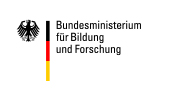Registration in the context of the master program Sensor Systems Engineering
Registration for microcredential
Registration in the context of the master program Artificial Intelligence for Connected Industries
Registration for microcredential
Wireless Sensor Networks
Modulgruppe: Sensorik, Systementwurf
Students can explain the essential requirements and unique challenges of wireless ad-hoc networking; they can identify differences to classical wired networks and explain them.
The Description of the module you find at the Module Handbooks:
Module Handbook Sensor Systems Engineering
Module Handbook Artificial Intelligence and Machine Learning for Connected Systems
- Introduction to Wireless Sensor Networks (WSN): requirements, applications, and examples
- Hardware and software platforms for WSNs
- Link-layer technologies for WSN communication
- Networking protocols and data dissemination strategies
- WSN security and privacy
- Simulative and experimental evaluation
- Related domains (e.g., vehicular ad-hoc networks, delay-tolerant networks)
Students can explain the essential requirements and unique challenges of wireless ad-hoc networking; they can identify differences to classical wired networks and explain them. Given specific application requirements, students are able to design simple examples of wireless sensor network systems and construct and evaluate these systems. In particular, students are able toselect existing routing and data dissemination strategies and adapt or extend them to suit specific scenarios. They can describe state of the art of wireless sensor network research and seminal research works. Using the acquired methods, students independently analyze new literature in sub-domains that were not covered in the lectures. They explain fundamental concepts of securityand privacy protection in WSNs, select appropriate protection mechanisms, and integrate them in system architectures.
The study program combines self-study and group work in a flexible online learning environment. Students have access to video lectures, a detailed and user-friendly script tailored for working professionals, as well as interactive quizzes and exercises. Regular tutorial sessions and online office hours with mentors support the learning process, while discussion forums facilitate exchange among students. For more detailed information, please refer to the module handbook.
- An academic degree is required.
- Content: Fundamentals in computer networks, operating systems and computer architectures. Programming skills in C or Python.
Recommended requirements:
- Desktop computer or notebook, with a supported version of Microsoft Windows, Apple macOS or Linux
- Headset
- Current version of Mozilla Firefox, Google Chrome, Apple Safari or Microsoft Edge
- Access to the internet (e.g., via xDSL, Cable, LTE, 5G) with a minimum data rate of 3 Mbit/s for downstream and 384 kbit/s for upstream.
In case of questions regarding the technical requirements, please don't hesitate to contact us.
Regular participation in online seminars will help you solving exercises, which have to be loaded up to the learning management system after request of the mentor. Passing the exercises successfully is recommended for participation in the final oral examination at Ulm University. For further information, please have a look into the module description.
After finishing your exam successfully you will get a certificate and a supplement, which will list the contents of the module and the competencies you have acquired. The supplement confirms you the equivalent of 6 credit points (ECTS).
Lecturer

Prof. Dr. rer. nat.
Frank Kargl
Director of the Institute of Distributed Systems

Gefördert von:



